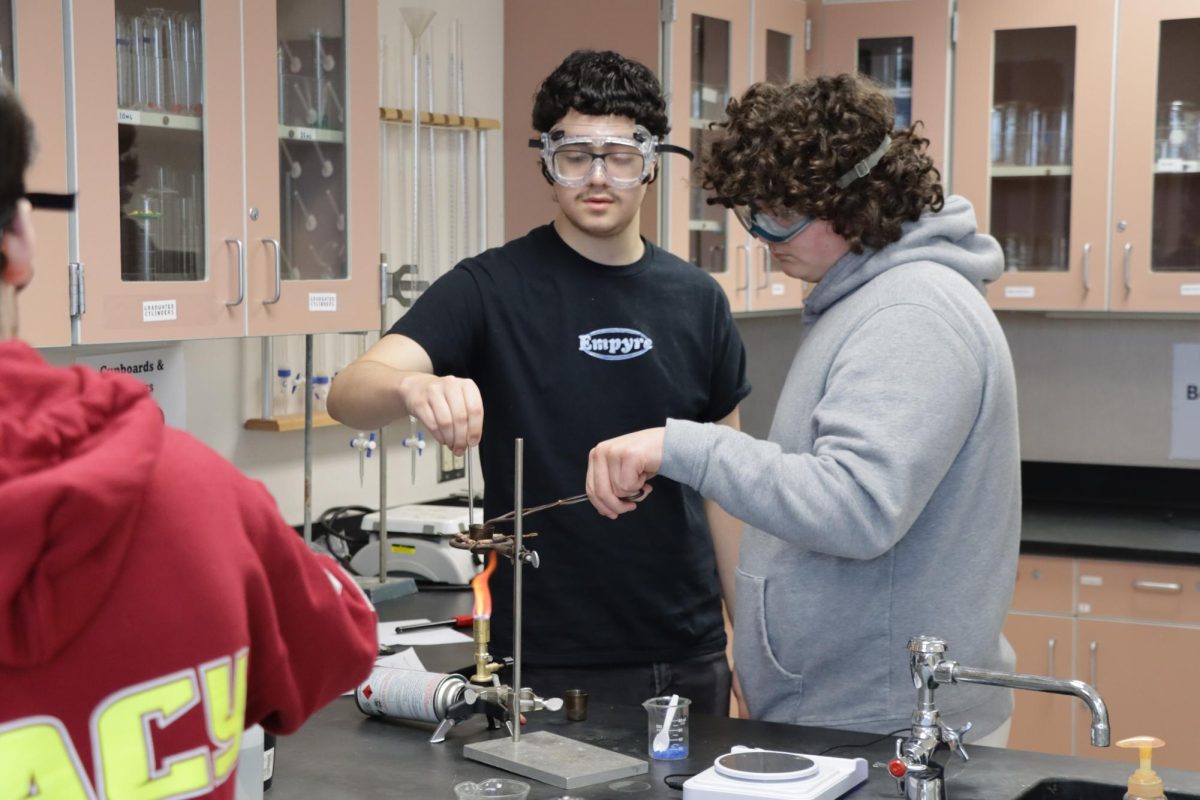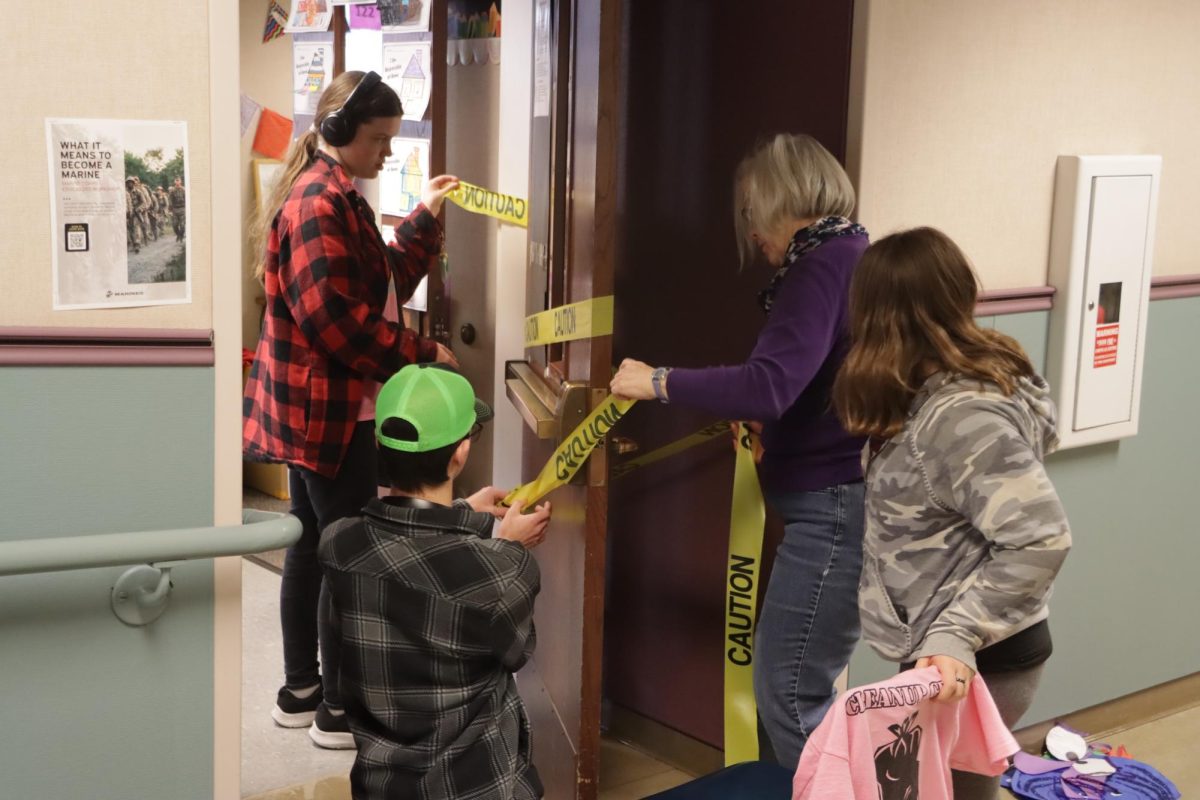Learning can be done through many different avenues, like school and life experiences. But another way students can learn is by seeing the accomplishments of historical figures.
In early February, Mychal Limric’s AP U.S. History class had a mini-unit on the Buffalo Soldiers, with two days of discussion and a presentation from Trooper Darrel Nash, a Buffalo Soldier historian.
“There’s so many stories in history that don’t get told. It makes me sad to think that people miss out on that. So, while it’s cool to have Trooper Nash come speak to us, it’s just the beginning of that type of activity,” Limric said.
Nash was in the military for 26 years and then became a State Patrol Trooper. He joined the 24th Infantry Regiment in 2004 and then the 9th and 10th Cavalries, when he became an official historian. He retired and is working with the Buffalo Soldier Museum and gives presentations on Buffalo Soldier history.
“I started doing this when I was in high school; I just got interested in studying history. I found out all the things that Black troops had accomplished,” Nash said. “And they did a lot of things. And I didn’t know all the things they did until I got older in life. We have a lot of things we’ve done and accomplished. So that’s what got me into it and I never stopped.”
Black soldiers have always been a part of the U.S. military, since the Revolutionary War. Even though only white men were allowed in the Army, women and Black people still found ways to fight, but their efforts have largely gone forgotten over time.
“Our society reflects the stories that were told in prominent society and the story of Black soldiers, Black teachers, Black scholars and Black athletes was secondary in the mainstream narrative of American history because it was dominated by white historians and white politicians,” Limric said.
After the American Civil War (1861-65), Congress officially created six Black regiments in the Army with the Army Organization Act passed July 28, 1866. These regiments were later combined into four: the 9th and 10th Cavalries, and the 24th and 25th Infantries, all of them known as Buffalo Soldiers.
“The involvement and rights of African Americans in history, especially when it comes to the military, is often swept under the rug and not talked about as anything other than negative. And yet, you can’t tell the story of the American military without talking about Black soldiers. It’s paramount to that story,” Limric said.
The name “Buffalo Soldiers” came from fighting with the Cheyenne Native American tribe in 1867. According to Nash, the tribe found the soldiers of the 10th Cavalry worthy opponents and named them after the buffalo, a very sacred animal.
“Every inch of the buffalo [the Cheyenne tribe] revered. So that’s how you see the 10th Cavalry got the [name] Buffalo,” Nash said. “They paid homage to the buffalo; they paid homage to the Native Americans. A lot of our history is based on what the Native Americans did. They gave us a sense of adventure, folklore, history, romance.”
Nash says that the legacy of the Buffalo Soldiers has carried on even to this day. Colonel Allen Allensworth of the 24th Infantry Regiment was the first to hire literate men to teach his soldiers.
“Without an education, you cannot go very far in life. That’s a fact of life. That’s a proven fact. Again, when you are educated, you can do a lot more things,” Nash said. “Because they knew how to read and write the army began to promote those privates to corporals.”
Nash himself experienced the effects of Colonel Allensworth’s legacy: when he got to the Army, they still provided a literary education.
The Buffalo Soldiers’ legacy goes beyond education. For example, in 1910, the 25th Infantry put out the biggest fire in U.S. history, known as the Big Burn.
“The fire was so big it was the size of Connecticut. The smoke went as far as New York City and as far down as Dallas, Texas,” Nash said. “The 25th Infantry Regiment got the call to go ahead and fight that fire, that’s how big that fire was, and they saved the city of Wallace, Idaho.”
Nash described the Buffalo Soldiers in three words: Adaptability, courage and bravery. Not only did they achieve a number of things, they did it all while withstanding discrimination and hardships.
“They had a lot of courage in what they had to do; when people didn’t like and they didn’t want to do the job. They had extreme bravery that they showed in every war, on a daily basis is a chance they got,” Nash said.





